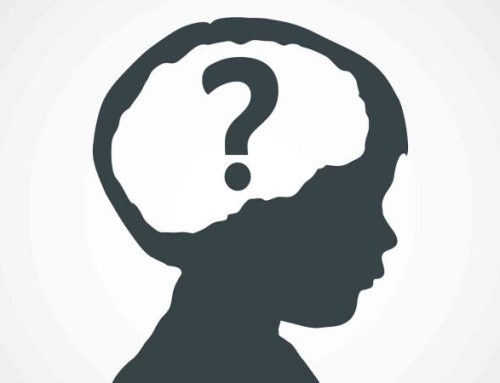How to Be More Curious: Ask the Experts
July 21, 2016
Categories: Curiosity
One thing I’m working on this year is to be more curious and open to different kinds of people and experiences. Since this is a new thing for me, I’m on the lookout for new exercises or practices to help cultivate curiosity in my life. To help me (and you) become more curious, I asked some experts in the field this question:
What is the most effective practice or exercise you have used to cultivate curiosity in your own life?
Here’s what they said:
Curiosity can be experienced and expressed in two overlapping but distinct ways. The first kind, Interest (I) type, involves being curious about new information expected to be interesting or fun (e.g., novelty-seeking). The second form, Deprivation (D) type, involves feeling deprived of information needed to correctly answer a question or solve a problem. D-type expressions involve putting several pieces of information together to figure out something (e.g., sleuthing, researching).
We find evidence of some stability in tendencies to express I- and D-type curiosity as personality traits, but you can give each trait a “workout” so to speak, in order to cultivate them:
I-type: If you feel yourself turning away from something that’s unfamiliar, new experiences – fun or not — can provide a lot of new information you might not have discovered (be safe and reasonable, of course). This also involves being open to other points of view, and welcoming differences of opinion.
D-type: Don’t take what you currently know about something or someone for granted — everything and everyone around us is an incomplete, unsolved puzzle that might be better understood by applying additional thoughtfulness and reflection.
Or, in short: Be open to the new, but also be willing to devote time and effort to explore a specific topic more deeply.
–Jordan Litman, Institute for Human and Machine Cognition
The most life changing practice I have used to cultivate curiosity is asking open questions (begin with who, what, where, when and how). We all love to be experts or fixers/solvers which leads to conversations or leadership style rooted in telling – which shuts down conversations and opportunities and leads to blame, shame or getting stuck in a “I am right/ you are wrong” mindset – all without even knowing it – and all of it leading to conflict. Asking open questions allows you to be curious in conversations, keeps the focus on the speaker (not self) to better understand their perspective, which opens the conversation up to learning, deeper connections and endless possibilities.
–Kirsten Taberner Siggins, author of The Power of Curiosity
I confess that I’ve had a freakish number of hobbies over the years and enjoy diving into new things. (My latest obsession, and perhaps longest in many years, has been restoring vintage timepieces and blogging about it.) I’m also into repairing cars, overhauling small engines (especially lawnmowers), reading about American history, cooking, bread baking, and a few other things.
I think that curiosity and anxiety are like 2 sides of a see-saw. People avoid diving into new things because they are wary and nervous. So anything that helps nudge people past wariness—will I look stupid? will it be a waste of time? will I be able to do it?—will work.
One easy way is to try new things—like taking a “Quilting for Beginners” workshop—with a friend. If it turns out to be lame, embarrassing, way too hard, or not what you expected, at least you can laugh about it with a pal. Another is to remind yourself that you’re doing it for fun, not to compete with the professionals. People can be oddly perfectionistic about leisure hobbies.
I think curiosity begets more curiosity. We’re all born with a love of learning, but it can get blunted if not occasionally honed.
–Paul Silvia, University of North Carolina at Greensboro
Discussion: What is one practice or exercise you could try this week to cultivate curiosity in your own life?
Related Thoughts
7 Comments
Leave A Comment

Subscribe To My Newsletter
Join my mailing list to receive the latest blog posts.
Receive my e-book “The Mental Health Toolkit” for free when you subscribe.




[…] Be curious. In general, negative emotions tend to close us down and narrow our thoughts. This can shut us off from being open to new possibilities. Instead, take a curious stance. What new thing might God have for you? Is there anything new and different that you could do now, even though it wasn’t what you had expected? Is there anything you could learn from your experience? How are you growing or changing as a result of what happened? […]
[…] I think this is a problem that makes me less happy. The lesson here, from the lady on the train and my cousin, is to be happy with the normal. They both engaged their everyday lives with a sense of wonder and curiosity. […]
[…] comes later in life. But kids can help us! To connect well with children, you have to be present. You have to be curious. You have to get down on their level and track where they are at and where they are […]
[…] second option is to be open and curious about the change. Change is usually a mix of good and bad. So, there will be some aspects of loss […]
[…] there is the scarecrow. The scarecrow is searching for a brain. One key virtue is inquisitiveness or curiosity. At its best, questioning happens without crisis or fear. We engage the world and its big questions […]
[…] an open hand. And when something happens that contradicts it, consider the new information with curiosity. Revise your hypothesis if necessary. Think about this process as a good thing, because you are […]
[…] here I was, having a big reaction. I tried to be curious about it. One thing I have noticed over the years is that if you have a reaction that feels […]